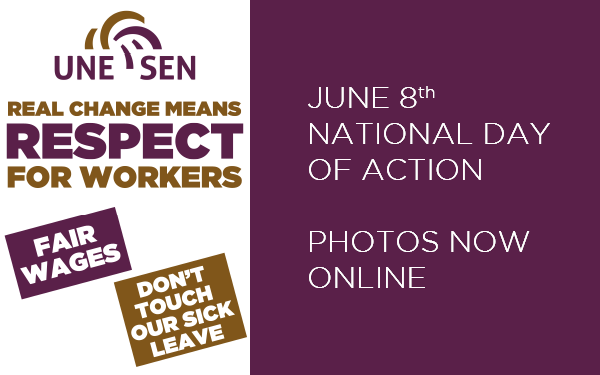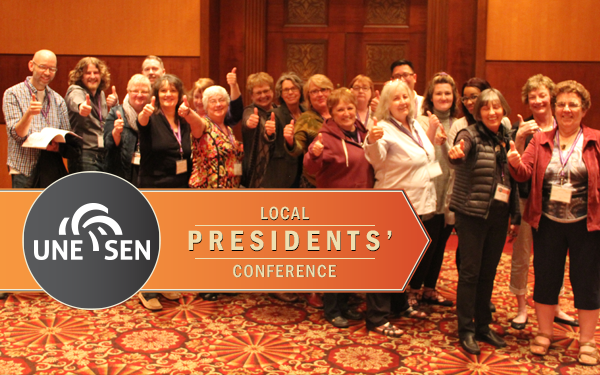A House of Commons Special Committee on Pay Equity is recommending a new proactive federal law for public and private sector workers.
“We are very pleased with the Committee’s report – It’s Time to Act recommending the government accept the overall direction of the 2004 Federal Pay Equity Task Force report and adopt the majority of its recommendations,” said PSAC national president Robyn Benson.
The Committee recognized the current law isn’t working for either employees or employers. It also recognized the role of unions in the pay equity process.
In her presentation to the Special Committee, Benson highlighted PSAC’s almost 40-year history of successful pay equity complaints in spite of long delays and stubborn resistance by employers. The recent victory for members at Statistical Survey Operations took almost 15 years to achieve.
“We urge the government to move quickly to consult with unions and other stakeholders in order to introduce the new law before the 18-month period recommended by the committee has passed,” added Benson.
Key recommendations
The Committee recommends that a new federal pay equity law:
- apply to all unionized, non-unionized, full-time, part-time, casual, seasonal and temporary employees
- apply to federal public service, Crown corporations, all federal-regulated companies with 15 employees or more and companies participating in the Federal Contractors Program
- set a deadline to have pay equity plans in place within three years of the law coming into force
- include mandatory reviews to ensure pay equity is being maintained
Create a specialized Pay Equity Commission and Tribunal
The Committee also recommends the creation of a distinct Pay Equity Commission and a Pay Equity Tribunal with both bodies having the jurisdiction, authority, expertise and resources to carry out their responsibilities. The new Tribunal would be given clear and broad enforcement authority including the ability to award costs.
Equity groups
One Task Force report recommendation the Committee did not deal with is the inclusion of other equity groups in the legislation. The Committee has recommended Statistics Canada allocate additional resources to collecting better data and analysis to determine the factors of the gender wage gap.
Repeal the law that applies to the federal public service
The Committee recommends the government repeal the Public Sector Equitable Compensation Act (PSECA).
“There is no need to wait to implement this recommendation. We urge the government to introduce legislation to repeal PSECA early in the fall session,” concluded Benson.
Introduced by the Conservatives in 2009, PSECA barred federal public sector employees and their unions from filing pay equity complaints with the Canadian Human Rights Commission. The committee report noted that none of the witnesses spoke in favour of keeping this law in place.









 Since December 16, 2015, PSAC members employed by the Ontario Lottery and Gaming Corporation (the OLG) have demonstrated tremendous and overwhelming solidarity in the face of a brutal five-month lock out imposed by the OLG.
Since December 16, 2015, PSAC members employed by the Ontario Lottery and Gaming Corporation (the OLG) have demonstrated tremendous and overwhelming solidarity in the face of a brutal five-month lock out imposed by the OLG.






